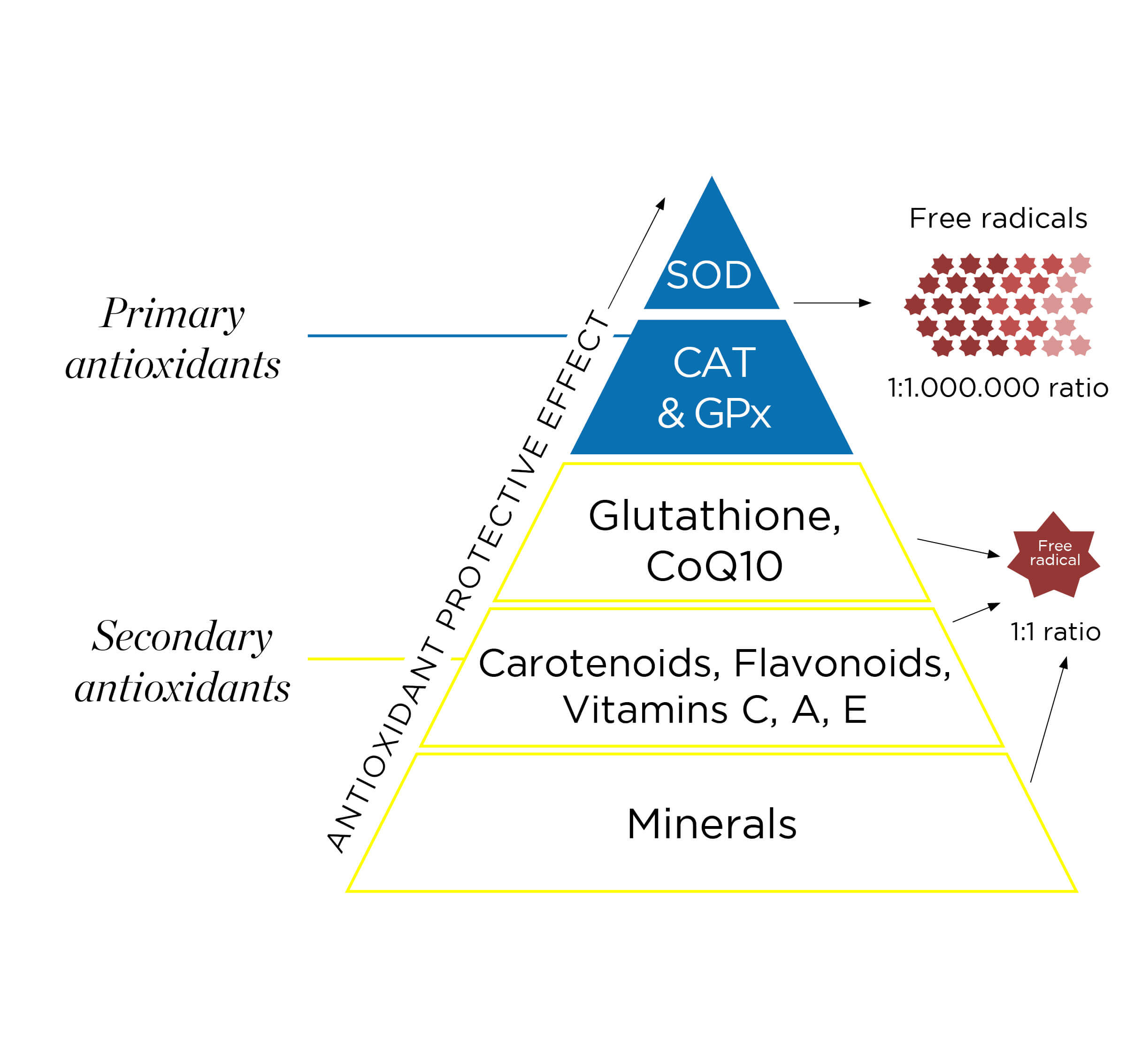Much more than an antioxidant
While traditional antioxidants simply provide the body with exogenous molecules, Extramel® is able to do much more: it stimulates the body’s endogenous defences.
Because the most efficient antioxidants are not the ones you eat, but the ones produced by your body.

A short overview of oxidative stress
Reactive oxygen species (ROS) are produced by living organisms as a result of normal cellular metabolism and environmental factors (UV rays, air pollutants or cigarette smoke, for example).
Although highly reactive molecules, a tightly regulated production of ROS is beneficial for normal physiological functions. They are indeed involved in signalling reactions and the immune response.
Excessive ROS, however, may have detrimental effects. Caused by ROS overproduction and/or a decrease in antioxidant defences, the imbalance between ROS production and detoxification is termed “oxidative stress”.
Largely encouraged by our modern lifestyle habits, this oxidative stress results in protein, lipid and DNA damage, disruptions of the normal signal transduction pathway and has been implicated in numerous human disorders.
Why are antioxidants not all the same?
(1) The balance between oxidizing and antioxidant species is critical to maintain healthy biological systems. To assure this equilibrium, our antioxidant defence system relies on internal and external compounds, both acting synergistically to maintain or re-establish homeostasis.
(2) The first molecules involved in the antioxidant defence are essential enzymes naturally produced by the body. Those 3 primary antioxidants, Superoxide Dismutase (SOD), Catalase (CAT) and Glutathione Peroxidase (GPx), are able to control the first steps of the Reactive Oxygen Species (ROS) cascade production. Thanks to their complementary and synergic mechanism of action against free-radical precursor species, they avoid an imbalance in the ROS ratio, preventing the development of oxidative stress from its starting point.
As enzymes, they also constantly renew themselves to provide continuous and long lasting antioxidant protection.
(3) Provided externally from dietary sources, secondary antioxidants (vitamins, minerals, carotenoids and flavonoids) operate later on the oxidative stress mechanism. They only express their activity on existing secondary radicals by donating electrons and converting them to more stable products, each antioxidant targeting only one free radical. They are quickly exhausted with no possibility of renewal.

Extramel®, an original demonstrated mechanism of action

(1) After oral ingestion, our patented coatings protect Extramel® from denaturation and loss of effect that would be caused by gastric acids.
However, even if the amount of molecules reaching the intestinal barrier is preserved, a major limitation remains: SOD, with its high molecular weight, cannot be absorbed and never reaches the blood circulation. Yet, numerous health benefits have been reported following an oral Extramel® supplementation, thus raising the question of its mechanism of action.
(2) Studies have shown that Extramel® may interact with intestinal receptors and trigger a cascade of events resulting in induction of the expression of the three endogenous primary antioxidant enzymes: SOD, CAT and GPX.
(3) Without even being absorbed, Extramel® is able to stimulate the body’s own antioxidant defences and maintain a healthy balance of free radicals.
Through this action on oxidative stress, Extramel® is additionally able to indirectly impact inflammation.